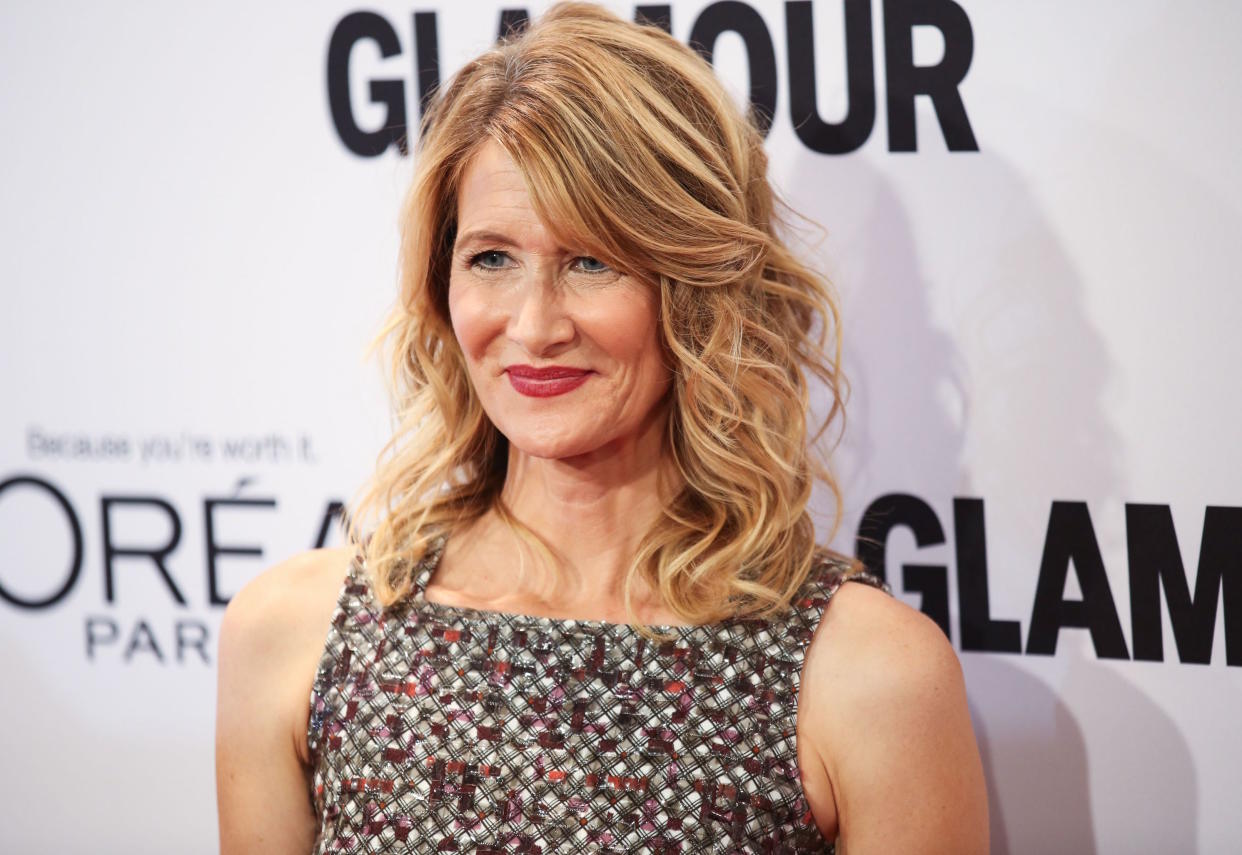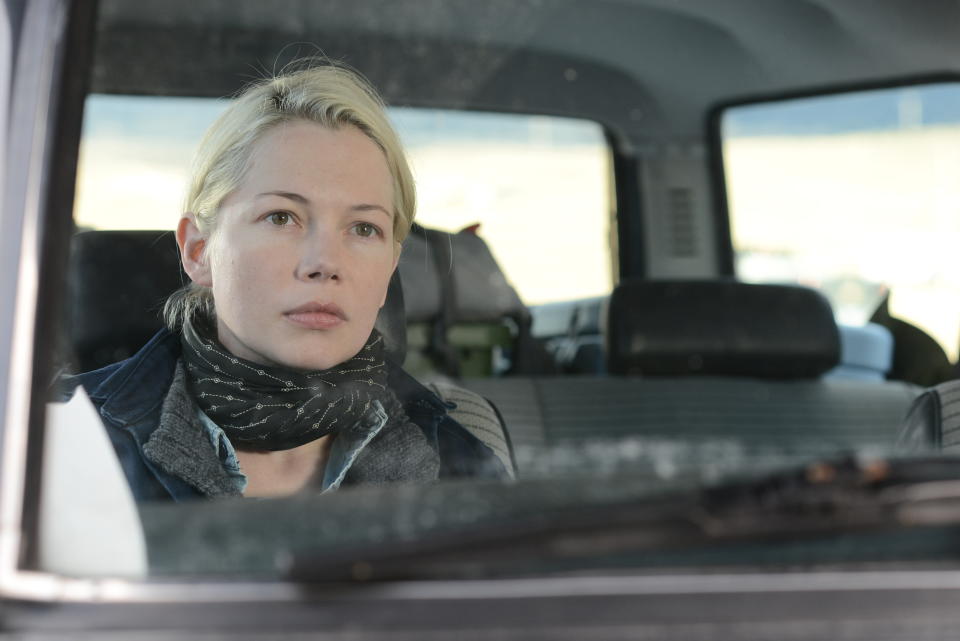Laura Dern On ‘Certain Women’, ‘The Founder’ And The Importance Of Understanding Small-Town America

Oscar nominee Laura Dern, last competing for her role as Reese Witherspoon’s mother in Jean-Marc Vallée’s Wild, had a productive and politically charged 2016, finding roles in Kelly Reichardt’s Certain Women and John Lee Hancock’s Ray Kroc biopic, The Founder. In Reichardt’s film, Dern portrays a beat down, small town lawyer confronting masculine insanity, arrogance and neglect; in Hancock’s, she faces off against Michael Keaton’s Kroc, one of the most famous and successful narcissists in modern American history, in whom the actress finds parallels to a certain other contemporary American figure. Below, Dern discusses Reichardt’s process, the small town American portrait, and the resonance of her 2016 releases in the current American political and social climate.
What led you to get involved with Certain Women?
First of all, just being an enormous fan of Kelly Reichardt, and I’m very close with Todd Haynes, who has collaborated with, and then was the very closest of friends with Kelly for a long time. Todd and I have worked together, so Todd was the first person who brought it to my attention, and was going to be a producer on it, and asked if I would be involved, which was amazing because I have so much respect for him and so much respect for her. Phil Morrison, another filmmaker who I’ve worked with and love, also is a collaborator with them. Any time that tribe invites you to a party, you want to be at that party.
That already began the conversation, and then [Maile] Meloy’s stories themselves, which are beautifully and so thoughtfully written, but this idea that Kelly had of telling these three different stories, without a manipulated intent to connect them, I thought was really brave and inventive and interesting, because it seems that how they connect really unfolded, for Kelly, in the editing room. And then for us, it was once we saw the film and did press together—myself, Kristen [Stewart] and Michelle [Williams]—that we started having a conversation of how we thought the themes resonated, and how we connected. It was fun to be part of a film that told its story even through press recently.
Through filming what feels like a vignette with this character, or a short story, what did you discover?
I think for me as an actor, the greatest opportunity, and therefore challenge, was how quiet this person’s struggle is, and in a way, how quiet her shame is about who she hasn’t been. Here’s a woman who hasn’t been considered in her life in the way she deserves, hasn’t been listened to in her life the way she deserves, and that’s spoken to really beautifully. But at the same time, when given this position of authority, she isn’t considering the pain of the client. She becomes fatigued by him and his issues, his pain, all of it. She tries to make it go away, basically.
That’s just a really interesting thing to consider, for those who have been victimized and put upon. We forget everything we fought for just because we think maybe, “You know what, I’m just going to hope this person is going to make all my problems go away. I know they don’t represent anything I believe in…” And we’ve seen a lot of that from the disenfranchised. I think that character speaks a lot to that.
As an actor, we can have an instinct to want to show it, and I feel really lucky to be growing up, as a person, while I’m growing up as an actor. Literally having started as an 11-year-old, as I’m figuring out how to be a grown-up, I’m learning how to trust the character more and trust the director more in showing less. That was a great challenge and opportunity for me.
It seems that there’s something inherently American about this kind of small town portrait.
I think so. I think we’re all trying to understand small-town America, and I think we must. I feel like, as artists, it’s an exciting time for you to write about it, for me to act, for all of us to consider, what does it feel like to have a life that looks like this?
With all due respect to our feeling that we have a pulse on what’s happening in the country in LA and New York, we don’t. We have our own pulse on what’s happening for us, but it’s just very different. I think it’s an exciting time for Kelly and filmmakers like her to be considering that reality of these women.
One of the most striking aspects of your scenes in the film, in relation to their quietness, is the extraordinary calm with which Laura confronts extreme and unsettling situations.
Yeah. I have to say, too, I find her hilarious, in such a different way, the whole scene and the way she directed it. It’s so matter-of-fact, and the fact that these men are going, “Yeah, put it on. You should be fine. Just go in there. If we don’t hear from you, we’ll know something happened.” She’s like this lone figure, half asleep, half in pajamas, and this bulletproof vest, being sent into abject devastation with a loaded gun.
Kelly and I were laughing a lot when we shot that because it just seemed so perfectly absurd, and the more she directed it to be so understated and so like no one is commenting on it, it reminded me a lot of how we’re led, as Americans. It’s like, “Oh, no, no, no. This is going to be fine. I know that this seems like an emergency, but there’s no emergency.” We’re all like, “Oh, okay. Point us in the right direction. Why’d this happen?”
Though the film is quite grounded, it does have its comedic moments. Were the comedic aspects of the film entirely premeditated?
Certainly in my story it was, just because we found the humor in it together, and [Kelly] is very funny, but in a very wry and subversive way, as a filmmaker and a person, which I love, and love to try to somehow bring that into the performance. That was great fun, and even the lover, even the brokenness of that, having to infer an entire relationship in a few moments is a really fun challenge. There’s humor in all of it. Bringing him this milkshake and these fries and his irreverence in that scene, I find a lot of humor in it. And his meltdown in the car…
There are far more extreme takes, and she definitely chose the subtlest take of her listening, but you can sort of see my character going, “Oh, f–k, what am I going to do now? I don’t want to be stuck with this guy,” instead of, “Oh, this is so heartbreaking. How can I help?” I think she’s very funny about selfishness, and with Michelle’s character, too, you see that.

Certain Women is a film about women, made by women. What do you think it says, in its ideas about gender?
I feel thrilled and privileged that I have the line in the film that I think resonates so deeply through all the stories, which is the line about, “If I were a man …” “If I were a man, and basically, they listened to me, it would be something.” And then she says, “It would be so restful.” That’s interesting language—it’s not an archly feminist statement, but it’s the ultimate [statement] about gender inequality, because as a woman, you’re exhausted of fighting for respect.
That’s the piece that I think the film holds—that you see Kristen Stewart just exhausted, driving hours for the one job she could find in the area, and maybe ten guys have that same job right in town. And Michelle is deemed, I think, with judgment because she’s a bargainer, or she’s trying to get what she wants, where she’s tough on her husband. He’s cheating. Men get what they want all the time, and they’re doing it around her. It’s interesting. I think that character is sort of asking for what she wants, and you can come across as like, “Oh, she’s bitchy.”
It would be nothing with a male character, so Jared Harris’s part is interesting. Here’s a man that we empathize with because he’s had it hard, and the system broke him, but I told him 30 times. I sat with him and walked through the law, told him how he can do it and what he can do, and he still doesn’t [listen]. The minute the man gives this to him, he stands there and goes, “Okay. The man told me, so it must be true.” Her job, her life, is exhausting. Again, that resonates that it would be so restful. Peace for women.
I’ve been learning a little bit about Bono’s new foundation, which I found really beautiful, called Poverty is Sexist, and when you look at the statistics—beyond the gender pay gap, just at the base level of gender equality—the statistics of women are five times more likely to be starving and hungry in the world than men. When you look at who is hungry, who is poor, who doesn’t get health care…
I love telling stories. I don’t need to tell women’s stories, but for women in the stories to be reflected in their struggle, whatever that is, that really interests me, especially right now.
Your other 2016 release, The Founder, also has a strong political resonance. What stood out most about working on that production?
Michael [Keaton] is extraordinary. He’s truly one of the most fearless actors alive and makes the choice that is truest for him and the character. He’s not looking for empathy, sympathy, connection. He’s behaving in the reality of the character, and he’s made such incredibly brave, and funny, and mean, and wonderful choices, at moments with me. For a smaller role in the scheme of things—because it is quite an ensemble, and each of us has our section in the history of Ray Kroc—it was amazing to get to work with him. John is just so amazing and kind and wonderful to work with, on top of being great at what he does.
We are, in fact, telling the story of a severe narcissist, who doesn’t care about other people or the outcome of his need. In his life, he’s had a chip on his shoulder, so he’s going to do whatever it takes and, frankly, throw over whomever necessary to rise to the top of the highest title he can get in America. With that, the rest is history.
It is reminiscent of other characters in American history. It’s an interesting time to draw parallels about what happens when you’re not considering the country you’re building an empire in.
Related stories
'Frame 394' Documentarians Rich Williamson And Shasha Nakhai On The Problematic Rise Of Fake News
'Moana'-Opening Animated Short 'Inner Workings': Director Leo Matsuda On The Anatomy Of The Idea
Get more from Deadline.com: Follow us on Twitter, Facebook, Newsletter

 Yahoo News
Yahoo News 
